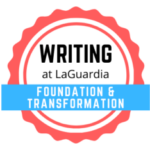-

Habits of Mind Homework (Activity) by Rochell Isaac
The Habits of Mind are an identified set of 16 problem solving, life related skills, necessary to effectively operate in society and promote strategic reasoning, insightfulness, perseverance, creativity and craftsmanship. The understanding and application of these 16 Habits of Mind serve to provide the individual with skills to work through real life situations that equip…
-

Habits of Mind Activity by Rochell Isaac
Habits of Mind Activity This activity might work as an ice breaker early in the semester. Provide students with an overview of a strength, then introduce students to Habits of Mind. You may also provide student with a visual chart. You can access a Habits of Mind Chart Here. According to CliftonStrengths (Gallup’s assessment tool to measure talent themes), “A strength…
-

Introduction to Multilingualism in College Composition for Students by Ting Man Tsao
“Introduction to Multilingualism in ENA and ENG 101” by Ting Man Tsao Letter of Welcome & Introduction to Multilingualism in ENA 101 by Ting Man Tsao Hi, How are you? 你好吗 Nǐ hǎo? 你好嗎? This is Dr. Tsao of the English Department. Welcome to our first composition class at LaGuardia! The LaGuardia community is linguistically…
-

Tips for Working Toward a Multilingual Paradigm by Ting Man Tsao
1) As Lucy, Joy, and Evelyn remind us, adopting a multilingual paradigm “involves a shift in perspective and a willingness to engage in learning ourselves.” So begin by trying out one or two low-stakes multilingual activities or assignments. As we gain more experience, add or modify more activities or assignments. Don’t overwhelm ourselves by overhauling…
-

Dictionary Exercises & Reflection by Ting Man Tsao
1) After reading the handout “Using Dictionaries for Writing,” look up this word “exploratory” in the Cambridge Dictionary. Try and use different options and features in the dictionary to find the following information of the word (put your answers below): ⭐ meanings: ⭐ examples of the use of the word: ⭐ translations in a language…
-

Working Towards a Multilingual Paradigm: Using Dictionaries for Writing* (Activity) by Ting Man Tsao
A dictionary is a very useful tool for writing. With a good dictionary you can do the following: 1) Look up the meaning of an English word. But a word often has more than one meaning so do not just look at the first definition in the dictionary entry. For example, the Cambridge Dictionary online…
-

Multilingual Practices and Activities: Some Examples by Ting Man Tsao
1) To better understand their language backgrounds, ask students to fill out one of the questionnaires at the beginning of the semester. Feel free to modify them. Student Questionnaire on Language Background Multilingual Language Use Questionnaire Attitudes Toward Language 2) To enhance comprehension of an assigned text, give students the option to paraphrase select passages…
-

Working Towards a Multilingual Paradigm: Attitudes Toward Language*(Activity) by Ting Man Tsao
1) Is it important to you to master your native language or dialect? Explain. 2) Should children master their parents’ native language? Explain. 3) If you are not a native English speaker, do you think your own native language and culture will help you develop your skills in English composition? Explain. 4) Is it important…
-

Working Towards a Multilingual Paradigm: Student Questionnaire on Language Background* (Activity) by Ting Man Tsao
1) Name: 2) Education (degree obtained or school level attended): 3) Country of origin: 4) Country of residence: 5) If questions 3 and 4 are different, how long have you been in the country of your current residence? 6) What is your native language or languages? At what age did you begin to learn each?…
-

Working Toward a Multilingual Paradigm: An Introduction for Faculty by Ting Man Tsao
Located at linguistically diverse Queens, LaGuardia Community College boasts an equally linguistically diverse student body as the above word clouds show (Nagano, Tables 1 & 2). According to the college’s Institutional Profile, 56% of students are non-native born; they come from 158 countries and speak 89 languages (Office of Institutional Research & Assessment). What is…



